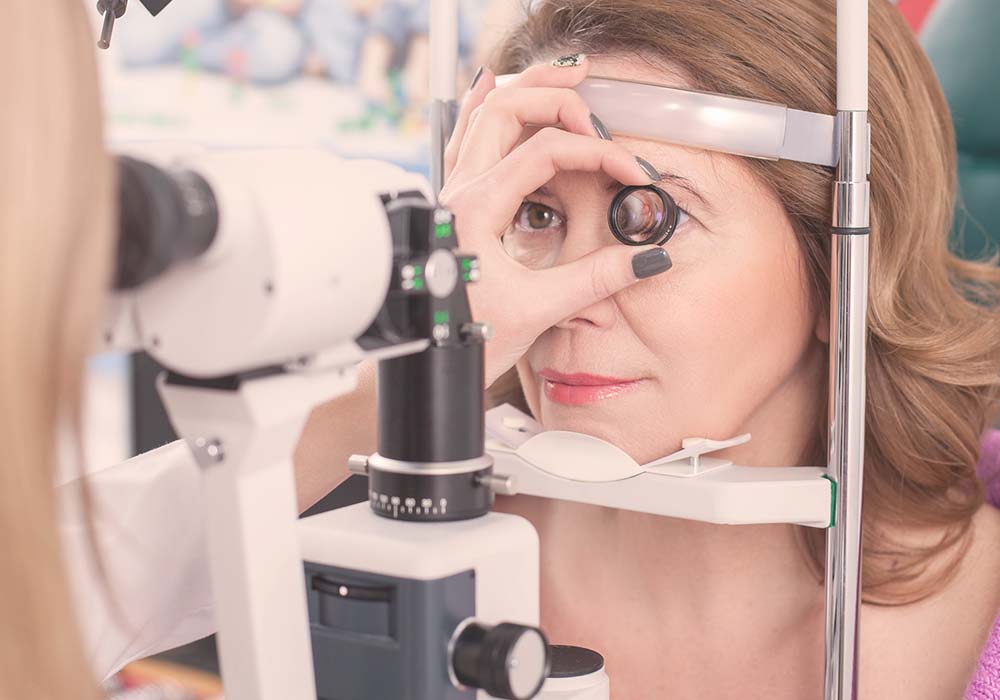Age Related Macular Degeneration
Otherwise known as AMD, age related macular degeneration is a degenerative condition affecting the central part of the retina (the macula), and results in distortion or loss of central vision.
What is AMD?
There are two types of macular degeneration:
- Dry: which is gradual wear and tear
- Wet: which is more aggressive and sight threatening
AMD is the leading cause of sight loss in the UK, usually first affecting people in their 50s and 60s, with around 1 in 10 people aged 65 showing some signs. The exact cause is unknown, but it has been linked to smoking, high blood pressure, being overweight and having a family history of AMD.

Symptoms
- Blurred or fuzzy vision
- Extra sensitivity to glare
- Difficulty reading
- Straight lines, such as sentences on a page, appearing wavy or distorted
A way to help monitor or detect AMD is by using an Amsler grid, simply tape or stick the grid at eye level where light is consistent and without glare. Cover one eye and fix your gaze on the centre black dot. If you notice that the lines look wavy or distorted, or that areas of your periphery are missing then please contact us to make an appointment.
Diagnosis
AMD does not cause total blindness as most people retain their peripheral vision, but it can make activities such as reading and recognising faces difficult. Without treatment your vision may gradually worsen; this can happen over several years with dry AMD or quickly over a few weeks or months with wet AMD, with early diagnosis greatly improving the success rate of any treatment.
Treatment
Dry AMD
There is no current treatment available to reverse the loss of central vision but it may be possible to slow it’s progression by lifestyle and nutritional changes such as:
- Not smoking
- Introducing more green leafy vegetables such as kale, spinach and cabbage to the diet
- Regular exercising
- Taking Eye vitamin and mineral food supplements
- Controlling systemic diseases eg high blood pressure and diabetes
Wet AMD
Injections given directly into the eyes at regular intervals at an eye hospital stop the progression of the disease in over 90% of patients with many experiencing an improvement in their central vision.
Early diagnosis is crucial in preventing vision loss and our investment in the latest technology allows us to see beneath the retina to check for the earliest signs of AMD.
